Fatherland Blu-ray Movie
HomeFatherland Blu-ray Movie 
Limited Edition to 3000Twilight Time | 1986 | 110 min | Not rated | Nov 10, 2015
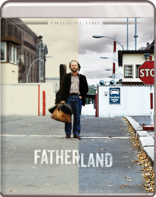
Movie rating
6 | / 10 |
Blu-ray rating
| Users | 0.0 | |
| Reviewer | 2.5 | |
| Overall | 2.5 |
Overview
Fatherland (1986)
A pop singer (Gerulf Pannach) from East Germany goes west to find his exiled father and expand his career.
Starring: Gerulf Pannach, Fabienne Babe, Sigfrit Steiner, Cristine Rose, Robert DietlDirector: Ken Loach
| Drama | Uncertain |
| Music | Uncertain |
Specifications
Video
Video codec: MPEG-4 AVC
Video resolution: 1080p
Aspect ratio: 1.78:1
Original aspect ratio: 1.66:1
Audio
German: DTS-HD Master Audio 2.0 Mono (48kHz, 24-bit)
English: DTS-HD Master Audio 2.0 Mono (48kHz, 24-bit)
German & English on one track
Subtitles
English
Discs
Blu-ray Disc
Single disc (1 BD)
Playback
Region free
Review
Rating summary
| Movie | 2.5 | |
| Video | 4.0 | |
| Audio | 4.0 | |
| Extras | 1.0 | |
| Overall | 2.5 |
Fatherland Blu-ray Movie Review
Reviewed by Jeffrey Kauffman January 4, 2020One of the things that has tended to fascinate me personally about the differences between capitalism and socialism as practiced in Communist countries like the Soviet Union was the way the different economic structures tended to handle artists, with my own personal background and interests tending to make me focus on musicians more than some of the other Arts. Capitalist cultures tend to adopt a “sink or swim” attitude toward those who want to make their living in the Arts, with what critics often call "the almighty dollar" taking precedence. The Soviet Union and some of its so- called "satellite" countries tended to give lip service to offering “support” for various artists who had gained the favor of “the state”, but of course that support came with some pretty serious strings attached, as I alluded to years ago in my Keeping Score: Shostakovich's Symphony No. 5 Blu-ray review. There's something quite similar at play (no pun intended) in Ken Loach's 1986 film Fatherland, which evidently was released (briefly it seems) in the United States as Singing the Blues in Red, a title which may hint at both some of the musical aspects as well as the political subtext of the piece. Those who are acquainted with Loach's filmography may have a bit more tolerance for this often dour film, one which charts (sorry again) the course of an East German singer songwriter named Klaus Drittemann (Gerulf Pannach), who decides to forsake the "certainty" of life under a Communist regime in favor of the "unknowns" of the West and capitalism.
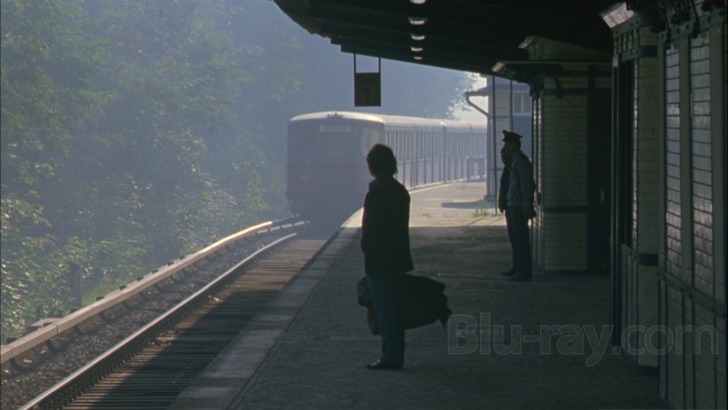
In a way, Loach seems to almost instantly undercut some of the dialectic (literal and/or figurative) he's attempting to set up, since Drittemann is shown as having arrived in the West as something of a fait accompli, celebrity-wise, meaning he's in a huge press conference with an already well established reputation, which would seem to hint that he's not going to have to struggle all that hard in the wild and woolly world where making a buck takes precedence over the needs of the "collective". The film then segues back to 1968 to detail Drittemann's tribulations at the hand of the enforcers of (literal) political correctness in East Germany, where Drittemann has run afoul of the authorities due to his protest songs.
While the clash between cultures is a constant subtext in Fatherland, the film’s title hints at another pressing plot element, namely the relationship (or lack thereof) between Drittemann and his estranged father (Sigfrit Steiner), another expat who has a history of antagonizing the powers that be (or were) in East Germany. A lot of the film details Drittemann’s attempts to make contact with his father, and the halting first steps at reestablishing some kind of connection between the two. There’s also a quasi-romantic aspect courtesy of a record label PR person named Emma (Fabienne Babe), though this being a Ken Loach film, anyone expecting roses, champagne and a cheery happy ending had best move on to another film.
Performances are generally quite strong throughout the film, but some may wonder how Drittemann became such a major star based on some of the material he performs in the film (some of which seems to have been written by Pannach).
Fatherland Blu-ray Movie, Video Quality 
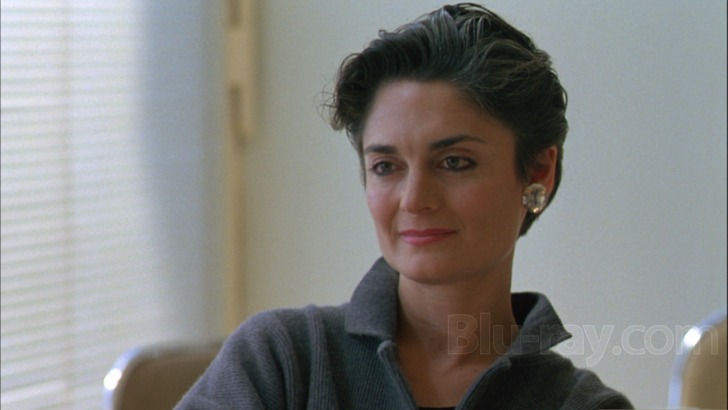
Fatherland is presented on Blu-ray with an AVC encoded 1080p transfer in 1.78:1. Lensed in typically Loachian naturalistic style by the admirable Chris Menges, this transfer is at times a bit on the hazy side, though fine detail on elements like a corduroy jacket Drittemann wears look nicely precise and well rendered. There are some slight contrast issues that can add a kind of milky scrim to a few selected scenes (I noticed it first in the opening press conference scene). The palette is natural looking, but by design tends to favor drab grays and other tamped down hues. There are some recurrent "dream" (and/or nightmare) scenes featuring Drittemann running from authorities or seeing his father play piano on what looks like a beach that are filmed in black and white, and contrast is generally very good in these sequences, though grain can spike at times. I noticed no compression problems of any note.
Fatherland Blu-ray Movie, Audio Quality 
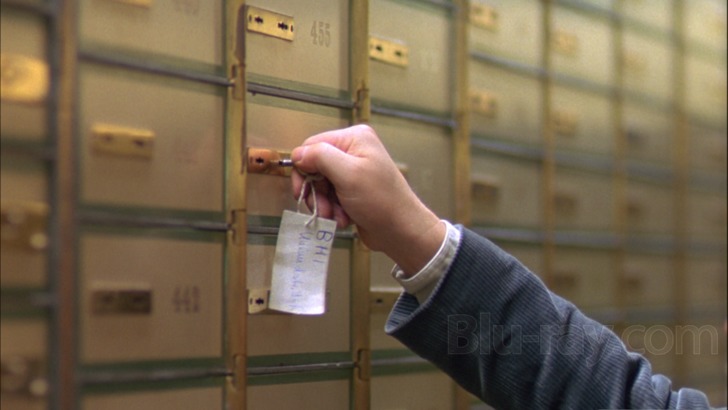
Fatherland features a DTS-HD Master Audio 2.0 mono track that kind of ping pongs back and forth between German and English, with the German spoken moments featuring burnt in English subtitles. Unfortunately, there are no optional English subtitles for the English spoken material, some of which is pretty heavily accented and which I at times struggled to completely discern. All of that said, fidelity is fine throughout this presentation, supporting the musical moments (Drittemann performs a couple of "his" tunes, and there's a variety of source music utilized throughout the film), as well as all dialogue. Occasional ambient environmental sounds also dot the proceedings and sound natural as well.
Fatherland Blu-ray Movie, Special Features and Extras 
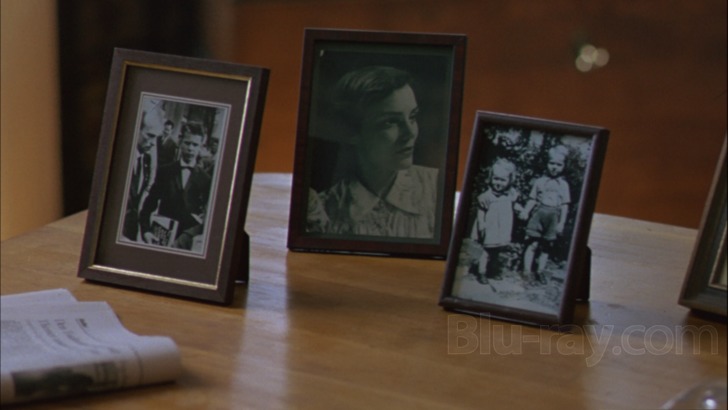
- Isolated Music and Effects Track is presented in DTS-HD Master Audio 2.0.
Fatherland Blu-ray Movie, Overall Score and Recommendation 
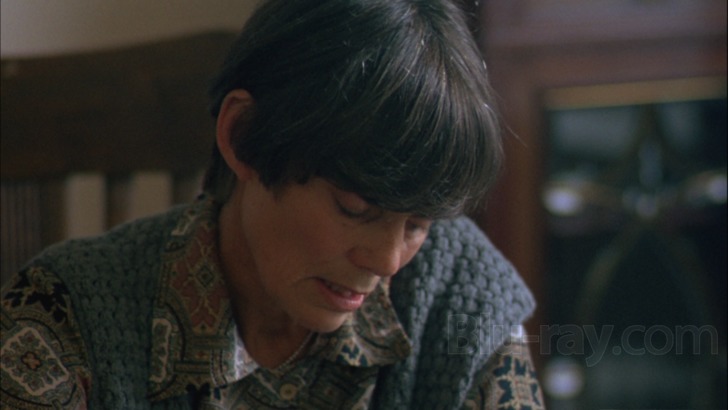
The films of Ken Loach tend to be an acquired taste, and as such, Fatherland will probably not be that appealing to the general populace. The film has a typically Loachian screed like quality at times (though it should be noted that the film was actually written by Trevor Griffiths, who notably did some early work on another politically charged film from this same general time period, Reds). There's a probably inescapable depressive quality to a lot of this film, and it's perhaps notable that the music here doesn't seem to provide any real catharsis for Drittemann, and by extension the audience, until rather late in the proceedings. Fans of Loach may find this more enjoyable than the public at large, but even a 2016 Guardian interview with Loach finds the director himself going on record as thinking the film is a "mess". Technical merits are generally solid for those considering a purchase.
Similar titles
Similar titles you might also like

Just a Gigolo
1978

The Night Porter
Il portiere di notte
1974

Veronika Voss
Die Sehnsucht der Veronika Voss
1982

Four Around the Woman
1921

The Marriage of Maria Braun
Die Ehe der Maria Braun
1978

Barbara
2012

Phoenix
2014

Stray Dogs
郊游 / Jiao you
2013

Taxi
2015

An Elephant Sitting Still
大象席地而坐 / Da xiang xi di er zuo
2018

The Big City
মহানগর / Mahanagar
1963

Beyond the Hills
După dealuri
2012

On the Beach at Night Alone
밤의 해변에서 혼자 / Bamui haebyeoneseo honja
2017

Les cousins
1959

Vice and Virtue
Le vice et la vertu
1963

Wrong Move
Falsche Bewegung
1975

The Forgiveness of Blood
2011

La Notte
1961

Things to Come
L'avenir
2016

A Separation
Jodaeiye Nader az Simin
2011